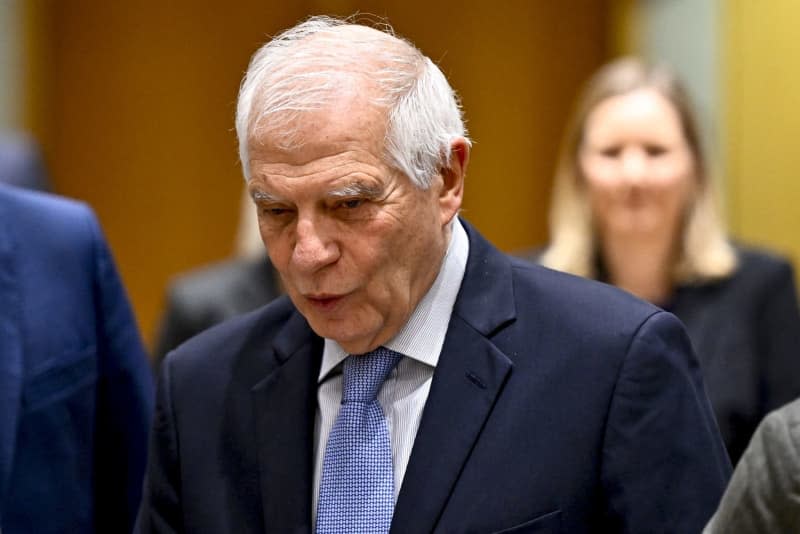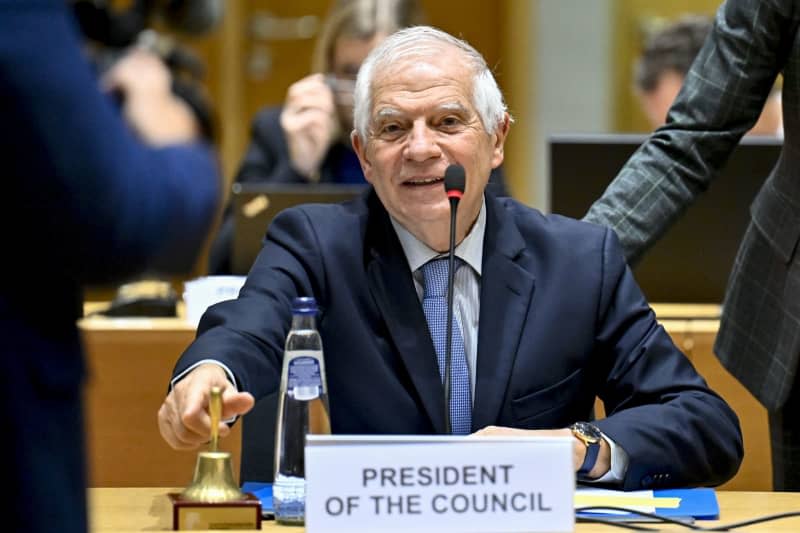EU foreign ministers approve deployment of Red Sea naval mission

- Oops!Something went wrong.Please try again later.
EU foreign ministers on Monday approved the deployment of an EU naval mission to protect shipping from Houthi militants in the Red Sea.
"It's a mission in the Red Sea and up to the Gulf [of Aden] to contribute to the freedom of navigation," EU foreign policy chief Josep Borrell told reporters after the ministers' meeting.
Called Aspides after the Greek word for "shields," the naval mission involves sending European warships and airborne early warning systems to the Red Sea, the Gulf of Aden and surrounding waters.
Aspides vessels will have orders only to fire on the militants if they attack first and will not be authorized to shoot pre-emptively. The operational command is to be in the Greek city of Larissa.
Houthi militants from Yemen have been attacking ships in the region in what they say is retaliation for Israeli military action in the Gaza Strip.
An EU official said on Friday that the country most harmed by the piracy is not Israel but Egypt, where declining traffic has caused a 40% loss of revenue for the Suez Canal Authority. Ships are having to go all the way around Africa instead.
The European Union's economy is taking a hit too: On Thursday, the EU's Economy Commissioner Paolo Gentilioni told reporters that "as shipping through the Red Sea has been rerouted, delivery times for shipments between Asia and the EU have increased by 10-15 days, and the costs of these shipments have gone up by around 400%."
EU foreign ministers also discussed at their meeting in Brussels how to reform the way the bloc pays for military aid to Ukraine.
Currently, individual EU member states providing aid to Ukraine directly can be compensated by the EU through a funding mechanism called the European Peace Facility (EPF).
But foreign ministers are still struggling to agree an alternative arrangement where member states procure some Ukrainian aid jointly through a €5 billion ($5.4 billion) top up of the EPF budget.
Germany, as the EU's largest economy, would be expected to pay the majority of the top-up at €1.25 billion. Berlin is pushing for aid supplied individually on a bilateral basis to Ukraine to count against their new obligations to fund the EPF.
An EU diplomat told dpa that given the size of German military aid budgeted for Ukraine in 2024, now at around €8 billion, this would in effect cancel out any additional EPF financial contributions from Germany in the new arrangements under discussion.
Other EU member states want such bilateral aid to be kept entirely separate from funding the EPF.
Germany's unwillingness to pay more into a joint EU fund for military aid to Ukraine is "very unfortunate," Lithuania's Foreign Minister Gabrielius Landsbergis said on Monday.
"There is a principle of European unity," he said. "Of course we can do things bilaterally, but it's way more difficult for a country like mine to support Ukraine bilaterally than to be in a group of 27."


